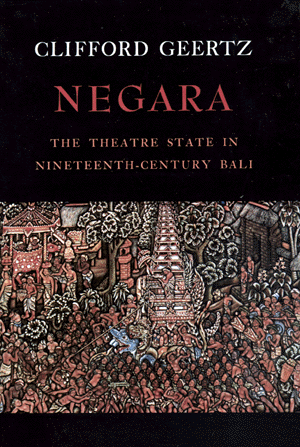
February 1, 2017, by Jake Hodder
Reading Group: Performance and the Senses
- Craggs R (2014) Postcolonial geographies, decolonization, and the performance of geopolitics at Commonwealth conferences Singapore Journal of Tropical Geography 35, 39-55
- Geertz, C. (1980). Negara: The theatre state in nineteenth-century Bali. Princeton, N.J: Princeton University Press.
- Paterson, M (2009) Haptic geographies: ethnography, haptic knowledges and sensuous dispositions Progress in Human Geography 33, 766-788
This reading group gave us an opportunity to grapple with one of the major themes of the project: how were conferences performed and experienced? Research on the histories of conferences often addresses them as political events in which delegates go in and resolutions come out, but the conference itself remains something of a black box. It’s less common for time to be devoted to the food, drink, accommodation or venues; how delegates felt and experienced the event; the impact of conferences on their host towns, cities, or countries; or to the spaces of socialising, relaxing and entertaining once the ‘formal’ deliberations end.
This reading group allowed us to start thinking about these themes through three texts. Mark Paterson’s overview of the state of sensory geography raised a number of important questions. For example, what language can we use to account for sensations? In the case of historical sources, how can we historicise feelings and how have approaches to the senses changed? Can sensory experiences be generalised beyond the individual? The reading group also discussed the challenges this posed in terms of method and approach, notably how cultural historical approaches to conferences would necessarily rely on a more intimate range of sources (diaries, personal letters, etc.) and a wider range of delegates than are usually considered.
Second, the reading group discussed the late American anthropologist Clifford Geertz’s work on symbolic anthropology an specifically the role of the organised spectacle in the pre-colonial Balinese state. Geertz’s account of how forms of power and rank were embedded in the performance of rituals and ceremonies raised a series of obvious connections to a project which seeks, first and foremost, to consider what role the public conference has played historically. Contemporary scholarship on conferences has drawn quite considerably from Geertz’s overall argument that these performances did not support the state, but they were the state. Carl Death’s work on climate change conferences, for example, similarly rejects conferences as delineated by a ‘front-stage’ which is the pomp, ceremony and show and a ‘back-stage’ where real politics gets done. This foregrounds our own approach that the space of the conference (its sites, senses, performance) is central to the kinds of claims and politics that could happen there.
The role of performance is specifically taken up by Ruth Craggs in her paper on Commonwealth conferences. She discusses how the conference alerts us to new sites of diplomacy where key geopolitical questions are brought to the fore, but which rarely receive rigorous scholarly attention (see here for her work on hotels for example). Most obviously this includes the conference centre, but it also includes the streets, hotels, restaurants, etc. Her paper focuses on two commonwealth conferences. In the first, Singapore 1971, she shows how the atmosphere was one of discord and division. East and Southern African leaders took a strong stance on the South Africa question and utilised the conference to voice their anti-colonial positions, including threats to boycott the event. The second, Lusaka 1979, marked a more positive role in shaping the evolving politics of decolonization. Like Geertz, she shows how the divergent readings of these two conferences rests on the role of staged performances. For instance, a dance between Zambia’s President Kenneth Kaunda and Margaret Thatcher at the latter shows how this enactment shaped the wider narratives of the conference as a geopolitical event. We hope to draw from this rich body of work in exploring our conferences as political spaces, but also cultural ones that allowed the international to be both performed and sensed.
No comments yet, fill out a comment to be the first

Leave a Reply